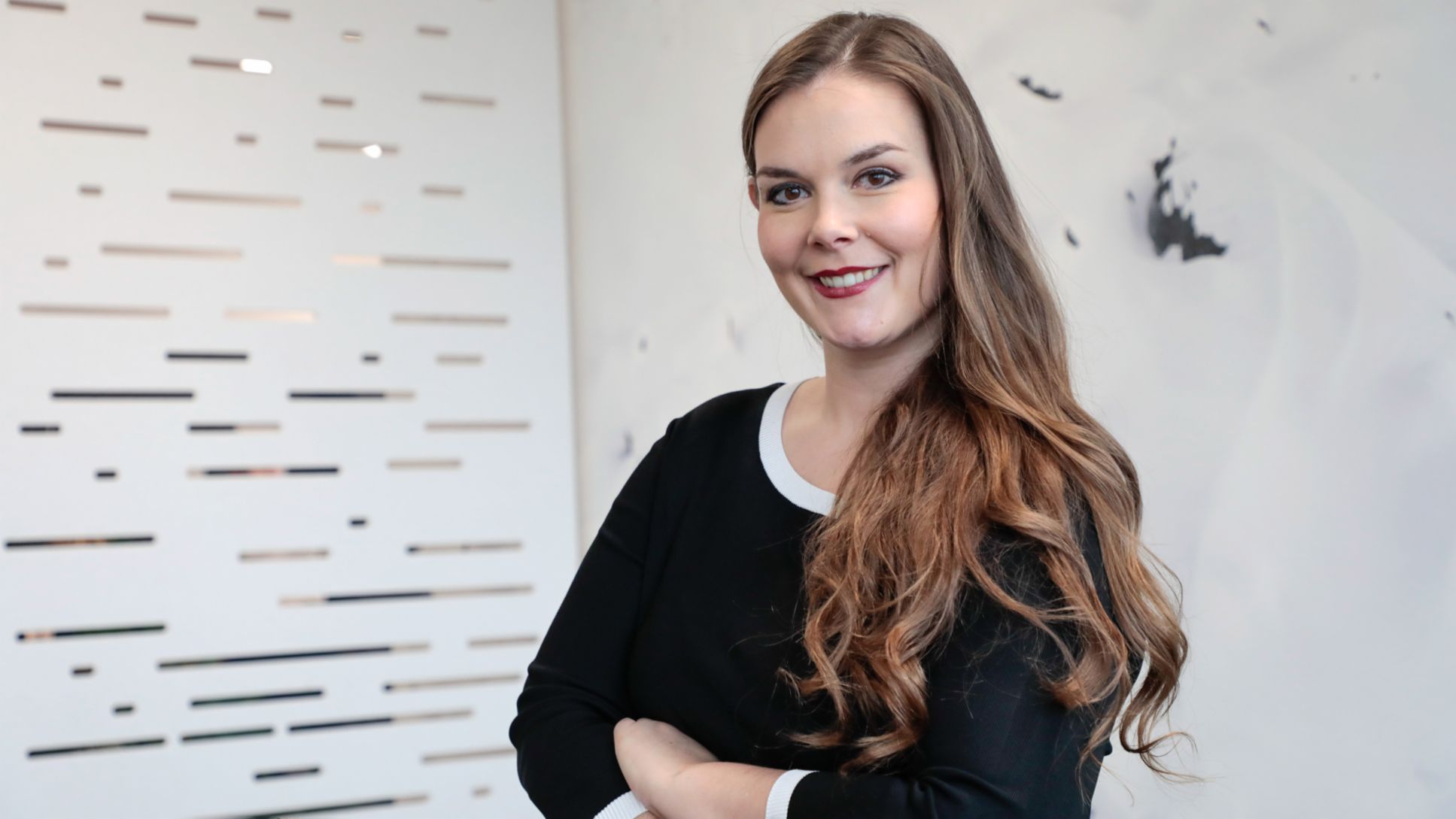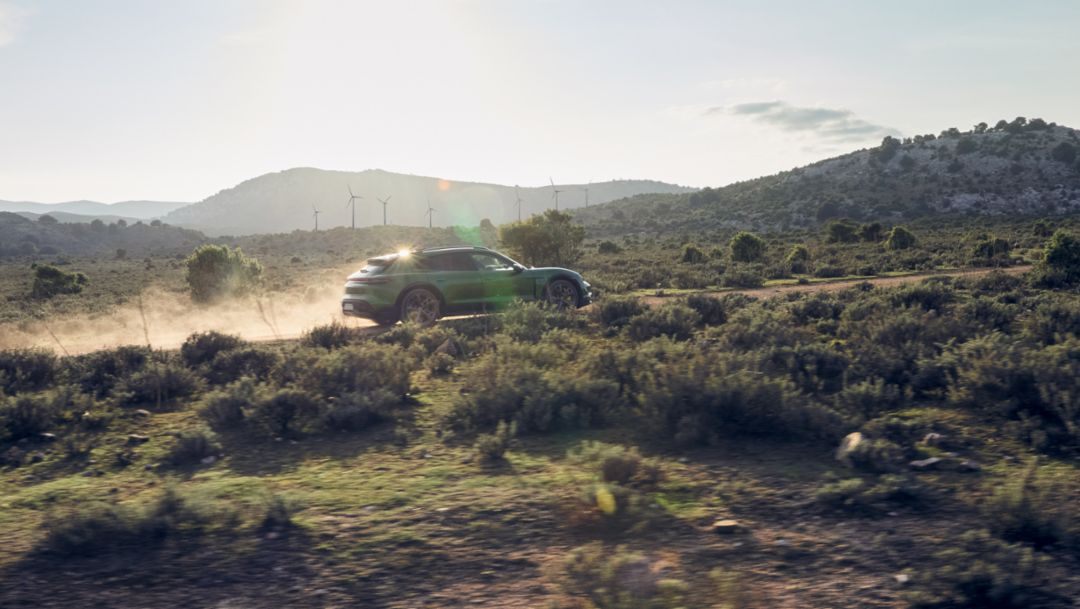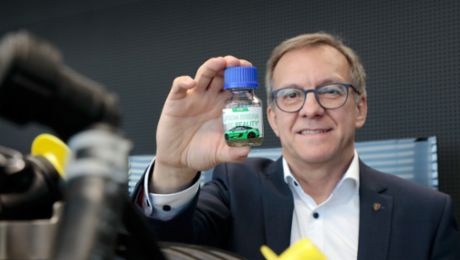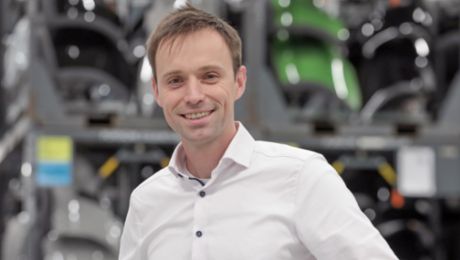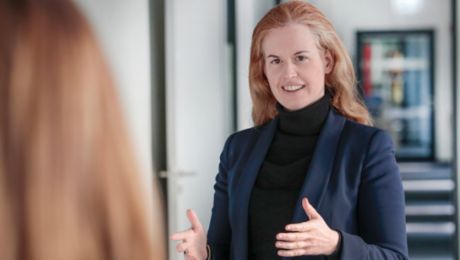You’ve been responsible for sustainability in the supply chain at Porsche since October last year. What did you do in the company before that?
Maike Kelessidis: I joined Porsche in 2015, at the time in operating procurement. After that I moved in the direction of strategy, acting in a wide variety of project management roles in the years that followed. In November 2021, I became a mother. After my return, I was offered the opportunity to take over the Sustainability portfolio for the supply chain here in Procurement. That was a great opportunity for me because it’s an issue that’s close to my heart personally and that is also given great importance within the company. We are currently facing very many changes that we want to tackle as a team. So I’m really looking forward to what’s ahead and the tasks before us.
In your position, you’re responsible for the S-Rating and German Supply Chain Act, among other issues. What’s that all about?
Maike Kelessidis: For us, the responsibility for a sustainable supply chain starts right outside the gates of our plants. Porsche is committed to due diligence with regard to human rights as well as sustainable supply chain management. So we communicate our requirements directly to our business partners and suppliers through our Code of Conduct. With the S-Rating, we evaluate the environmental and social conduct of our immediate suppliers of production materials using a set of defined sustainability criteria. Supplier self-disclosure ensures compliance with the Code of Conduct throughout our supply chain. If necessary, we also have the ability to conduct an on-site assessment. And the Supply Chain Act also came into effect at the turn of the year. This law requires us to act even more vigorously to ensure compliance with international human rights and environmental standards throughout our supply chain. We welcome these changes because they reinforce what we’ve been doing up till now. The uniform standards also offer a degree of legal certainty that’s very important for us as a company.
How do these issues play into the sustainability strategy for 2030?
Maike Kelessidis: Our mission is to keep an eye on the entire supply chain with our measures while at the same time still reaching our ambitious goals. Part of that is corporate responsibility. We are striving to improve the living and working conditions in the regions where raw materials are extracted. The need for action in these areas shows that sustainability throughout the entire supply chain is indispensable and therefore also plays an important role in the sustainability strategy of Porsche.
What measures have been undertaken to date?
Maike Kelessidis: Sustainability has been a major issue for us for a long time. So the topic of decarbonisation is very important to us. Together with our direct suppliers, we want to continue to lower our carbon emissions. To this end, we have already undertaken measures to cover our energy consumption through renewable energy sources. We’ve already seen some encouraging results in this effort. But we also apply some creative approaches. In our sustainability discussions with our direct suppliers, for example, we engage in a vigorous exchange of ideas. So we’re working on sustainability at every point in the supply chain. Part of that is also that we try to improve the working and living conditions of the people in the extraction regions. For us at Porsche AG, it’s crucial to support local projects that should improve the conditions for the people there. That motivates us to continue working on the overarching mission of a sustainable supply chain.
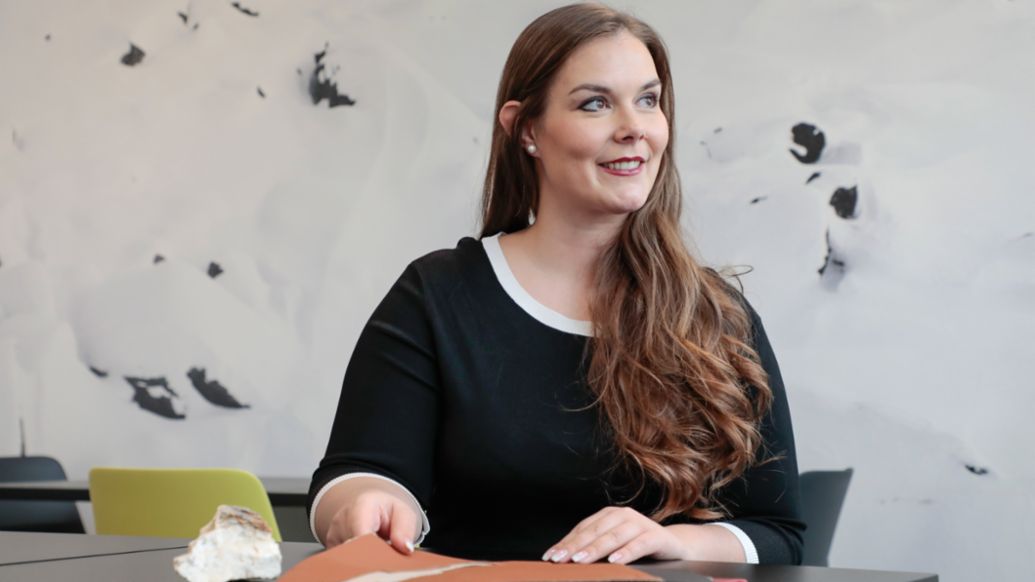
Changes like the Supply Chain Act bring in more stringent legal requirements. How do you deal with such challenges?
Maike Kelessidis: Artificial intelligence is an important instrument for us that helps us address the new legal requirements or insufficient transparency in the supply chain. We have had really positive experiences with that in the recent past. The many different legal requirements in a very short period of time are certainly a challenge, but we also see them as an opportunity to see our efforts to date validated by the legal framework now in place. Porsche was very early to commit to international standards and will continue to lead the way. We’re not waiting; we’re taking steps to reinforce a sustainable supply chain.
So where do things go now with regard to sustainability in the supply chain?
Maike Kelessidis: Procurement is already developing rapidly across the entire value chain. We want to work even more closely with our suppliers and also ensure that even the deeper sections of our supply chain are sustainable. The entire supply chain will become even more transparent. We want to continue along this path with our existing partners and gain new partners as well.
What motivates you personally?
Maike Kelessidis: Living in a sustainable manner has always been important to me. And the birth of my daughter has reinforced that thinking and action all the more. I want to do my part in ensuring that all people can have a liveable future. I want future generations to be able to have an even better life than we have today. We can’t just carry on as things have gone on for so long – we have to take action. And I pursue this goal through my work at Porsche as well. In my position, I can play a role in making the world more sustainable and leave my own personal footprint.
Your wish for the future is ...
Maike Kelessidis: ... collaborative partnership, most of all. In my ideal vision, we will continue to grow closer and multiply our approaches on down into the deeper supply chain. And everyone can bring their ideas to the table, which we will then implement together.
Info
In the interview series "Perspectives on Sustainability", Porsche employees talk about their specialist subject areas. The interview with Maike Kelessidis is part 5 of the series.
